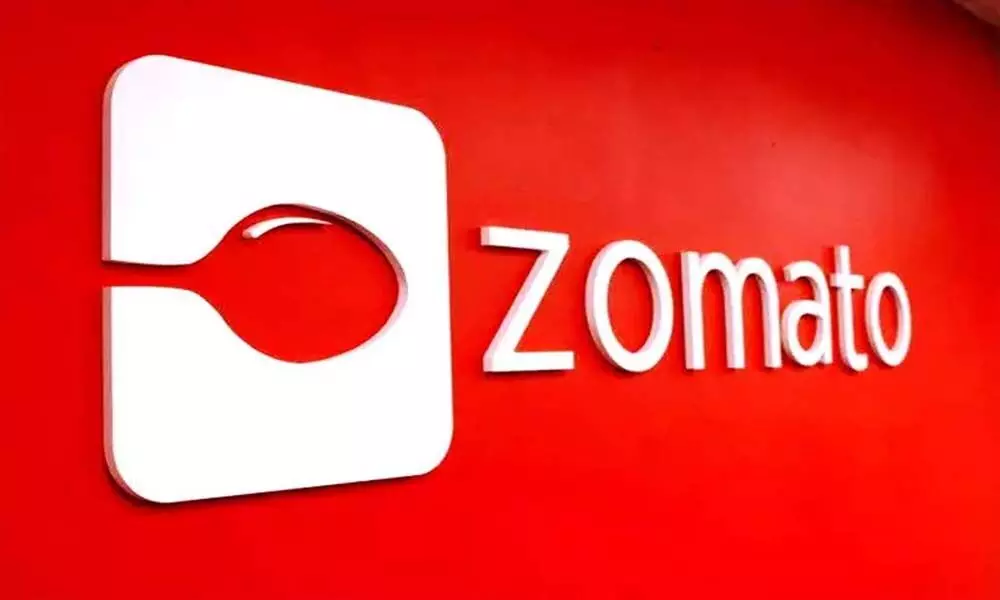Zomato IPO listing and what's behind the scenes
image for illustrative purpose

Zomato shares have made a stellar debut in the domestic market. Investors are willing to bet big on new-age technology companies which have the characteristics of a disruptive business model. It is also a tribute to Indian entrepreneurship.
The shares of the food startup opened at ₹ 116, a premium of ₹ 53 per cent compared to the issue price of ₹ 76. At 10:05 am, Zomato shares were trading at the day's high of ₹ 134.70, up 77.63 per cent on the BSE and ₹ 135.60, up 77.57 per cent on the NSE.
The IPO of the online food delivery service provider is the second largest IPO after the ₹ 15,199.44 crore Coal India share sale way back in October 2010. It is also the first Indian mega startup to go public, paving the way for the other leading digital companies such as Paytm, Flipkart and Ola to take the IPO route.
The Journey of Zomato so far
Zomato started off in 2010 after rebranding from the food directory website Foodiebay. The company was India's first foodtech unicorn and has continued to add new features besides delivery and discovery.
Similar to other startups, India's original foodtech unicorn Zomato saw many peaks and troughs in its journey. There were good times and troubled times too. In 2015, Zomato witnessed layoffs and losses, chances of Zomato's survival were bleak. The company laid off about 300 employees — nearly 10% of its total headcount due to weaker business aspects and shift the focus to more revenue-generating areas like reservations.
However, in Zomato's decade of existence, this was the biggest rough patch the company ever hit. The rest of the time, founder and CEO Deepinder Goyal and cofounder Pankaj Chaddah (who left Zomato in 2018) steadfastly held on to the reins of the company and kept the path of growth expanding.
Zomato's in the online food delivery business competes with Swiggy, UberEats, and others, the company still continues to innovate offerings and expand in the manner it has been doing since the day it all started.
Zomato's quick growth in India stands for its rapid expansion. Soon after its success in Delhi-NCR, the company started branching out to cities like Pune, Ahmedabad, Bengaluru, Chennai, and Hyderabad.
By 2012, Zomato had started growing overseas by offering its services to Sri Lanka, UAE, Qatar, South Africa, UK, and the Philippines. The year 2013 saw New Zealand, Turkey, and Brazil get added to its list.
Interestingly, Zomato persistently kept working on its tech backbone to match the boom in the smartphone trend and launched its app. The company also started aggressively acquiring foreign competition to increase its foothold in other countries.
Sadly, Zomato incurred losses in 2015 and after a slow 2016, in which Zomato saw further loss in revenues, the company decided to roll back operations in nine of the countries it had expanded to, handling them remotely to ensure it did not lose out on the markets.
The exponential growth
Ups and downs are something all startups see in their journey to becoming industry mammoths. In the first half of FY2020, Zomato recorded a 225% rise in revenue. According to the company's biannual report, it has registered $205 Mn in revenue, compared to $63 Mn in the first half of last year.
However, Big Bull Rakesh is no fan of Zomato and is not looking to hop on the bandwagon. Earlier last week Jhunjhunwala said that he sees 20% upside but 60% downside potential for Zomato. "It is not my party, I do not go there. This party will get spooked at some stage," he added.
Till this date, Zomato is among the most prominent startups in the country and has a presence in 24 countries worldwide.

